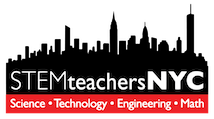A 3-part workshop focused on building strong mathematical community and strategies for fostering mathematical discourse. July 13, 20 & 27.
Strong mathematical discourse supports teachers in evaluating students’ understanding of concepts while building meaningful relationships and engaging all students. Well-tended discourse is an opportunity to bring out what students have learned, what background knowledge they bring, and how we can utilize this in our math community to learn from one another.
Community-building is the foundation for learning and discourse. In Part One of this three-part virtual series, participants will engage in activities and discussions that examine their own mathematical identity and how it impacts facilitation of mathematical discourse in order to build stronger mathematical communities in the classroom. Using the Standards for Culturally Relevant Mathematical Practices, in Part Two we will examine the criteria of strong, authentic, math discourse tasks, and what we are able to see and understand of students’ thinking. Participants will begin to create meaningful math tasks and questions that support specific conceptual understandings and connect to students’ lives. Time will be reserved for giving and receiving feedback, and to revising an example task. Part Three will focus on planning meaningful math conversations. Building on the strategies established in Parts One and Two, we will look at lesson component essentials, participation structures and discussion protocols, and unpack several examples of discourse linked to learning goals by problem type.

